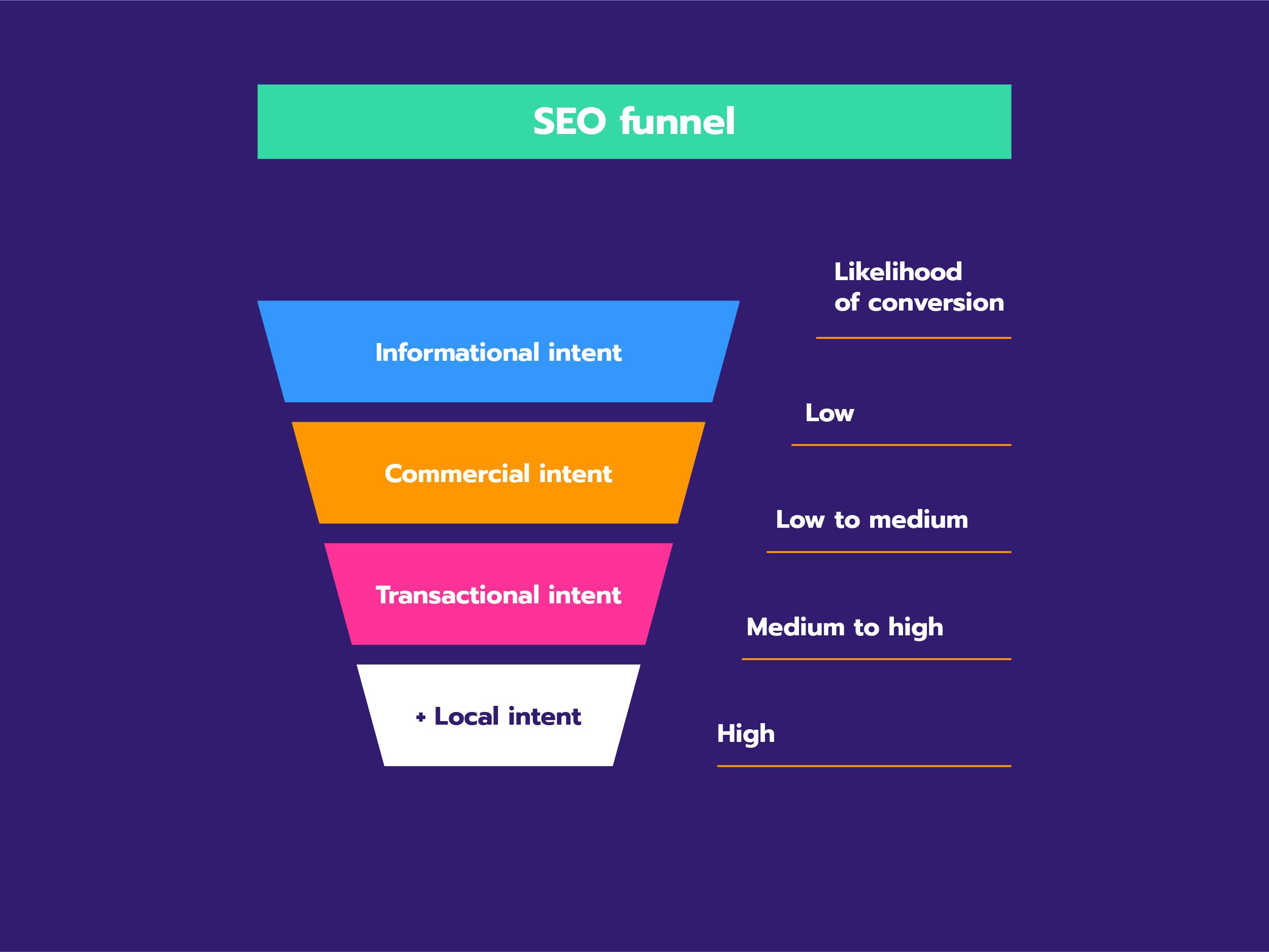Take advantage of long-tail search marketing
These days, the focus of SEO is almost exclusively on larger, general keywords. That's not surprising, because every keyword you want to focus on requires a corresponding basic SEO effort. Whether it is a keyword with high or low search volume, the work involved to create pages, write texts or implement SEO optimisations remains the same. If you do make all that effort, you obviously want it to generate maximum return. You therefore choose keywords with the highest search volume: the most generic and general ones.
Unfortunately, you're never the only one. Your competitors are also attracted by the lure of this logical choice. Everyone wants a slice of the pie. But what if you can leave the competition behind with a long-tail SEO strategy?

What are long-tail keywords?
As the name suggests, long-tail keywords are noticeably longer than generic keywords. Compare the following search terms: "trousers" vs. "blue jeans for men." The latter is more specific and contains more information. Precisely for that reason, a long-tail keyword has a lower search volume. That may seem like a bad thing, but it isn't. Indeed, individuals who make such a search are already much further along in the SEO funnel.
The SEO funnel is a visual representation of the process a (potential) buyer goes through. To follow a buyer through the funnel, you need to measure their intent. At the top of the funnel is awareness, the starting point of a search. At this stage it is mainly aboutinformational intent. The chances of someone converting at this stage are slim. Indeed, buyers are still searching for information about the product or service they want to purchase.
Long-tail keywords are part of the transactional phase with local intent. In other words, people are not only looking to buy, but preferably want to do so in a store near them. Keywords with local intent have a good chance of conversion. This is not entirely illogical, because the more specific your search, the more the intent to convert. After all, you've gathered all the background information, compared products, prices and brands, and looked up sales outlets and are actually ready to make a purchase (or other conversion).
How do you outsmart the competition?
If all your competitors are working on generic keywords, there is a good chance that your web pages will get lost in the competition. However, if you focus instead on long-tail keywords, then you are pretty much guaranteed to be found. That's because there is hardly any competition there, meaning that your pages appear in search engines. A nice example of long-tail keywords you can focus on and/or want to be found on are local searches. Local searches combine a keyword with a location, for example, "garage doors Ghent."
Long-tail search queries, even with a lower search volume, shouldn’t be overlooked.
It's true that the search volume for such a local long-tail search is rather low. However, it only relates to one location. In fact, there are many locations in Belgium (and beyond), 1,166 in Flanders alone and 2,771 throughout Belgium. When you add these many, small search volumes together, you get one very large search volume. The rule of thumb here is that the cumulative search volume - which is spread across all locations - is 53% of the search volume of the large, generic word.
For example: 'garage door' has a search volume of 10,000 per month. 'Garage door + all locations' has a cumulative search volume of 5,300 per month. There is an opportunity lurking in these figures. 5,300 people looking for specific, relevant, local content that no one else is currently providing. Except you.
What finding local long-tail keywords generates for you
If you are a supplier of garage doors, then it is worthwhile having local pages on your website. If you don't have any, then visitors making a local long-tail search will end up on a generic page. Local pages can be about anything: ideas, inspiration, what types there are or a comparison of certain parameters. However, a local search goes far beyond a pure request for information. Indeed, we know that people who perform a local search want information about a product or service in a specific location. Consequently, adding relevant content to local pages will bring youhigher quality visitors.
Long-tail keywords make up for their lower search volumes with higher conversion rates.
The fact that you get higher quality visitors also translates into more conversions. Your content matches the underlying need of the search, and people like that. A specific example? Read our Hörmann case study, where combining SEO and SEA led to a 5% increase in the conversion rate in two months.
Download our white paper
The basics of local SEO
Want to learn more about the importance of local SEO? Download our free white paper!



